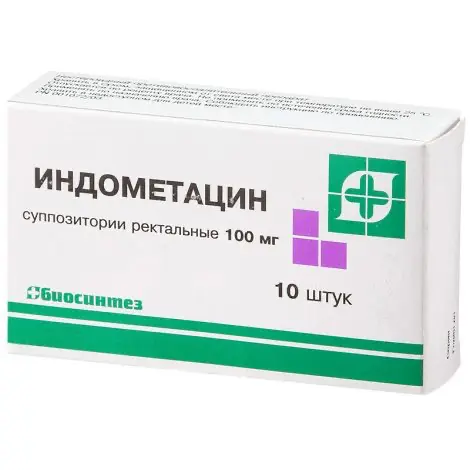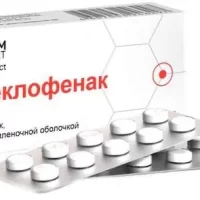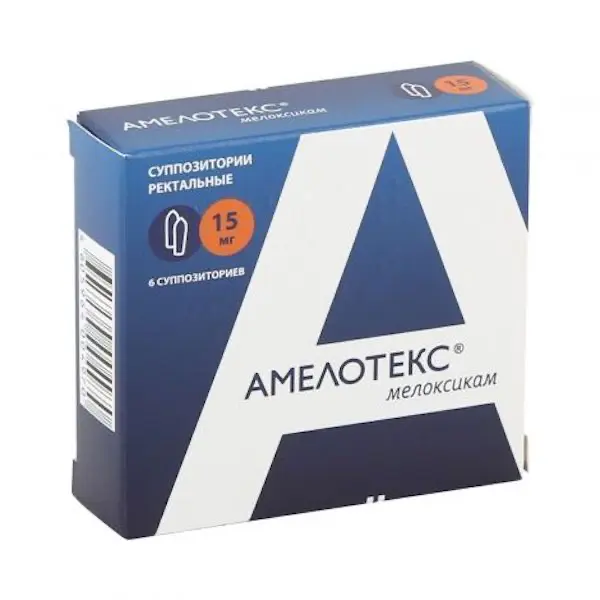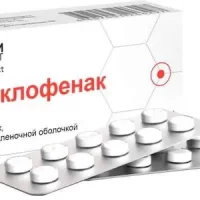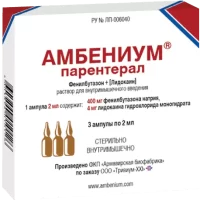Description
Indomethacin Pharmacodynamics
Indomethacin has anti-inflammatory, analgesic, antipyretic and antiaggregant effects. Inhibits the activity of pro-inflammatory factors, reduces platelet aggregation. Inhibiting cyclooxygenase 1 and 2, disrupts arachidonic acid metabolism, reduces the amount of prostaglandins (Pg) both in the focus of inflammation and in healthy tissues, suppresses exudative and proliferative phases of inflammation. Causes pain syndrome of rheumatic and non-rheumatic nature to decrease or disappear (including joint pain at rest and on movement, reduction of morning stiffness and joint swelling, helps to increase range of motion; in inflammatory processes following surgery and trauma, quickly relieves both spontaneous pain and pain on movement, reduces inflammatory swelling at the site of the wound).
Indications
NSAIDs are intended for symptomatic therapy, reducing pain and inflammation at the time of use, has no effect on disease progression.
Inflammatory and degenerative diseases of the musculoskeletal system: rheumatoid arthritis, psoriatic, juvenile chronic arthritis, ankylosing spondylitis, rheumatic soft tissue lesions; gouty arthritis.
As an aid in infectious and inflammatory diseases of ENT-organs, adnexitis, prostatitis, cystitis, neuritis, algodysmenorrhea, headache and toothache (in the combination therapy).
Contraindications
NSAIDs are contraindicated:
– During the period after aortocoronary bypass surgery;
– bleeding (including intracranial, from gastrointestinal organs), blood clotting disorders (including hemophilia, prolongation of bleeding time, susceptibility to bleeding), hematopoiesis disorders (leukopenia and anemia); for rectal use – rectal bleeding
– Congenital heart defects (coarctation of the aorta, pulmonary atresia, Fallo’s tetrad), heart failure;
– III trimester of pregnancy, lactation;
– Children under 14 years of age;
– Hypersensitivity to the active substance or auxiliary components;
– anamnestic evidence of an attack of bronchoobstruction, rhinitis, urticaria after taking acetylsalicylic acid or other NSAIDs (complete or incomplete acetylsalicylic acid intolerance syndrome – rhinosinusitis, urticaria, nasal polyps, asthma);
– ulcerative colitis, erosive-ulcerative changes of the mucous membrane of the stomach or 12 duodenum, active gastrointestinal bleeding;
– inflammatory bowel disease;
– cirrhosis with portal hypertension, marked liver failure, or active liver disease;
– severe renal insufficiency (creatinine clearance less than 30 ml/min), advanced renal disease;
– confirmed hyperkalemia;
– optic nerve disease, color vision impairment, hearing loss;
– bronchial asthma, edema;
– pathology of the vestibular system;
– Glucose-6-phosphate dehydrogenase deficiency;
– blood disorders;
– proctitis, hemorrhoids;
– arterial hypertension, hemophilia, hypocoagulation.
Dosage and administration
- Rectally: after releasing the bowel, if possible deep into the rectum – 50 mg 1-3 times a day or 100 mg before going to bed, during a gout attack up to 200 mg per day. Maximum daily dose is 200 mg.

